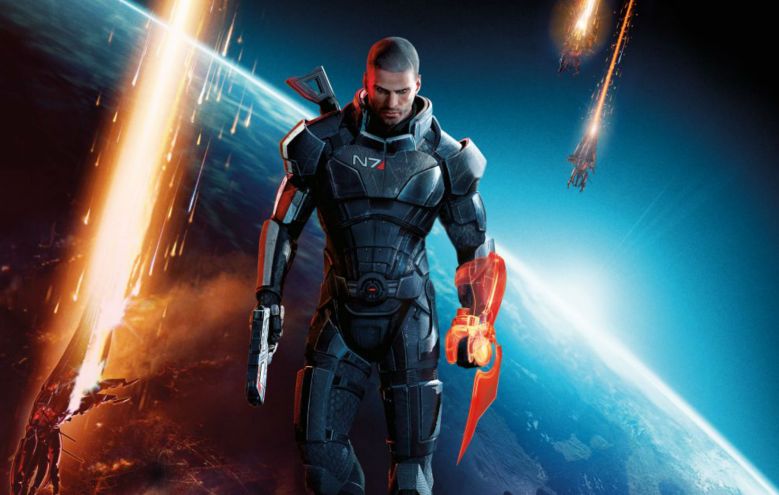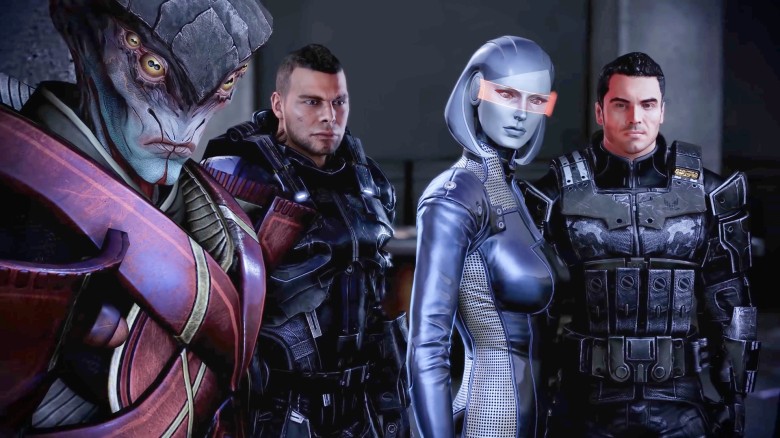
Genre: Action RPG, Third Person Shooter
Year: 2012
Developed by: BioWare
Published by: Electronic Arts
Platforms: PC, XBOX 360, PS3, Wii U
#65
Feeling Like: An End, Once and For All
For a period of time, BioWare ruled the gaming world. Every release was an event and they seemingly could do no wrong. If you had even a remote interest in RPGs, BioWare was your dealer and there’s a good chance the Mass Effect Trilogy was your vice.
Mass Effect 3 was easily the most maligned of the series. Despite a MetaCritic score of 93, you don’t get any indication that this was a well received game if you poke your head around various internet corners. I looked up “Mass Effect 3 retrospective” on YouTube and the top results are titles like “Was Mass Effect 3 as bad as I remember?” and “DISAPPOINTING – A story analysis of Mass Effect 3“. These two videos combined have a runtime of nearly six and a half hours.
It began a philosophical discussion about endings. What was the proper way to finish a massive, epic story that spanned three different games, graphic novels aplenty and four novels? Certainly the initial reaction was an outcry of hatred. How could BioWare do Commander Shepard dirty like this? For a game that relied on choice, the three options you’re given seemed to yield a near-identical result. Fans would argue it does a complete 180 on the entire premise.

I honestly wish I could tell you feelings on the ending, but the details sort of escape me. I do know I didn’t hate it as much as the gaming public. I saw it as a blip, an unsatisfactory finale but a few minutes of disappointment weren’t going to ruin my 100 hours of Mass Effect enjoyment. No way. It did raise my eyebrow, however, when BioWare announced they’d release a free update 6 weeks after launch to expand upon the ending. Now that, I hadn’t seen before.
Initially, I was annoyed. I’m not necessarily against creatives altering their product post launch (I mean, these days, it’s stranger if they don’t), but something bothers me about BioWare caving to internet trolls and death threats. So you don’t like the ending. Fine! That’s life. But, players were refusing to let go and honing in on the fact that BioWare seemingly abandoned what made the trilogy special and they felt they were misled. Ok, well that’s slightly more reasonable, but it opened up a proverbial can of worms in my mind. Had BioWare set a precedent? Are companies just going to change endings if a loud enough group demands it? I’m glad Naughty Dog didn’t cave on the Last of Us games, and the amount of toxicity from that “fanbase” is exponentially more repulsive. But if somebody is threatening to come to my house because I took away their ability to play a fictionalized player, I’m going to start thinking it’s not even worth it to begin with.

Besides, the real ending came in the Citadel DLC. What amounts to a large soiree, it’s a true culmination of your journey and it’s what players secretly had been wanting for years. You’re in a beautiful, futuristic condo. You can chat, dance, and have a chance to say goodbye. It sounds meaningless, but when the core Mass Effect experience is building relationships with these far out aliens and humans with psychic powers, it means far more than engaging hostiles or rushing down an exploding hallway. At this point you know all of them by heart, their names, their backstories, their desires, their fears, their motivations. How many times in RPGs have you wanted to just chill out with your friends and shoot the breeze? Few give us that option. BioWare did, but nearly a year after Mass Effect 3 hit shelves. By then, it felt like a true epilogue, despite it not being the last scene chronologically. It should be RPG law that everybody has to be present for a group photo.

The rest of the experience was terrific, even if the choices I made years prior didn’t quite blossom as I’d hoped. The set pieces are insane, the attack on Earth is front and center. Even the first mission throws you right alongside the Reaper’s destruction. The fight to regain home took me from planet to planet, starship to starship but at that point it didn’t matter. Despite how good everything looked, and by the matrix did the environments look good, the settings weren’t what I remember. It was the conversations with my friends, what they thought of the upcoming battles. What they thought of our newly recruited comrade. If they were interested in more than being friends. The romance, conflicts, lamentations, wishes and regrets are beautifully written, for every character. I never wanted to miss out on a single piece of dialogue because BioWare knew that was the heart of the game. Shooting aliens is about the most commonplace activity in video games, but here you had a full two games’ worth of familiarity to cash in on. You had the hot-chocolate voiced, insect looking, calming presence of Garrus next to you, sniping enemies with bullets and commenting on the situation with a much need wry sense of humor. EDI the unnecessarily attractive AI, voiced by none other than Tricia Helfer. You know, in case EDI needed to be more appealing. You had the only Prothean seen in a Mass Effect game in Javik, who waxed poetic with statements like “Stand amongst the ashes of a trillion dead souls, and ask the ghosts if honor matters. The silence is your answer.” The variety of the characters, their visual design, the stellar writing and impactful voice acting are what I’ll remember, and miss, the most.
What pisses me off is that I don’t think a series has come close to matching the interpersonal relationships seen in the Mass Effect games in 11 years since Mass Effect 3 was released. I think that’s why Baldur’s Gate 3 is getting so much widespread praise; it takes the time to intricately weave characters, scenarios, dialogue and building the relationships among your party members so you care that much more when something happens to them, and to you.

There’s simply too much to go into, I can’t cover it all in one entry. The fundamentals of the series will have to wait: reflecting upon Aria, and Ashley, and Tali, and Wrex, and the council, the Reapers, the Mako, the Illusive Man, the abilities, your spaceship, the captain’s quarters, the choice of powers to employ in combat, the buffet of DLC that expanded the universe, the codex, the lore, the costumes…everything. Everything! BioWare obviously had inspiration from science fiction classics, from Asimov and Clarke to Star Wars and Star Trek. The funny thing is, the games were so successful that when I saw Star Trek: Discovery for the first time, the bridge looked nothing like Starfleet. No, it appeared suspiciously like Mass Effect! A cosmic sign of respect, and it had come full circle.
It’s too easy to go on a tangent with the Mass Effect games. There are dozens of reasons the entire trilogy is this high up on the 500, and I hope I’ve justified it slightly here. Sure, the forced multiplayer participation was annoying and you can hardly say BioWare landed the plane smoothly. But I can still hear Wrex’s voice. I can still recall Tali explaining her race’s culture as if I played the game yesterday. I still feel the sting of Mordin’s absence. I genuinely had a difficult time leaving anybody behind when going on a mission. Everybody was useful, everybody was interesting. For a science fiction nut like myself who relishes the notion of surrounding myself with interplanetary soldiers and saving the galaxy, it simply doesn’t get better.

